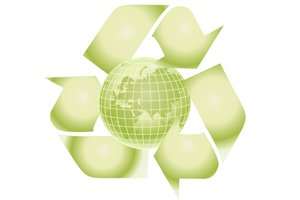Last updated April 12, 2019
 While the boom in information technology, including new and old cell phones, may have changed the lives of those in the middle class in India, the nation is paying a heavy price because of it. Although the new e-waste (Management and Handling) Rules 2011 came into effect as of yesterday, several states including the likes of Tamil Nadu, which is the second largest producer of electronic waste in the entire country, are simply not equipped to be able to cope with the recycling and disposal norms which are now expected of them.
While the boom in information technology, including new and old cell phones, may have changed the lives of those in the middle class in India, the nation is paying a heavy price because of it. Although the new e-waste (Management and Handling) Rules 2011 came into effect as of yesterday, several states including the likes of Tamil Nadu, which is the second largest producer of electronic waste in the entire country, are simply not equipped to be able to cope with the recycling and disposal norms which are now expected of them.
Toxic substances such as cadmium, mercury and lead are leaking into the soil, resulting in pollution of groundwater from garbage heaps. The country is set to generate over eight lakh tons of electronic waste this year, according to the Central Pollution Control Board, with a report stating that 65 cities in the nation generate over 60 percent of the total waste, 70 percent of which comes from just ten states.
Maharashtra is the number one generator of e-waste, followed by Tamil Nadu. Indian cities that generate the largest amount of electronic waste are Mumbai, Delhi, Bangalore and Chennai. Three of the most polluting-creating chemical industry clusters can be found in Tamil Nadu, which lacks a system to be able to deal with it.
“How the state deals with the problem will determine if we can salvage the situation,” one expert says. “We may need many more plants to recycle e-waste, apart from the single full-fledged facility in Oragadam.”